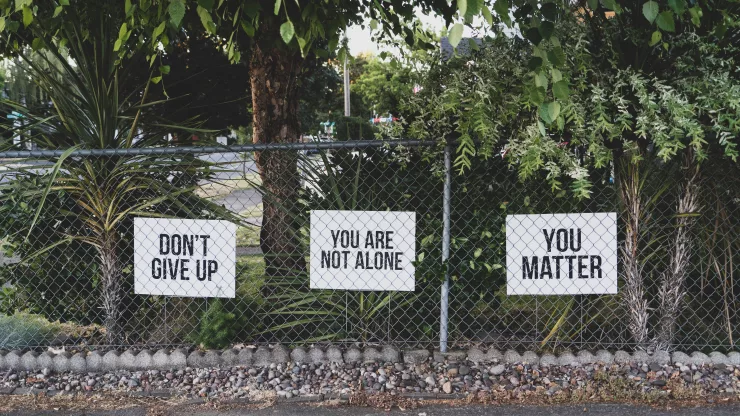In today’s fast-paced world, it’s easy to become overwhelmed by stress and anxiety.
Finding ways to take care of our mental health is crucial, and one surprising solution may be right in our own backyards: gardening.
Gardening has been shown to have numerous benefits for mental health, including reducing stress, improving mood, enhancing cognitive function, and encouraging physical activity.
In this article, we’ll explore the many ways gardening can benefit your mental health, as well as provide tips for starting your own garden.
Jump to Section
The Importance of Mental Health
Before we dive into the benefits of gardening for mental health, it’s important to understand why mental health matters.
Mental health plays a crucial role in our overall well-being, affecting everything from our mood and behavior to our physical health and relationships.
Poor mental health can lead to a range of issues, including depression, anxiety, and even physical illness. Taking care of our mental health is essential for living a happy and fulfilling life.
The Connection Between Gardening and Mental Health
So, what is it about gardening that makes it so beneficial for mental health?
For one, gardening allows us to connect with nature, which has been shown to have a positive impact on mental health.
Spending time in nature has been linked to lower levels of stress and anxiety, as well as improved mood and cognitive function.
In addition, gardening has been shown to have similar effects on the brain as meditation. Both activities promote relaxation and mindfulness, which can help reduce stress and improve mental clarity.
Gardening also provides a sense of purpose and accomplishment, which can boost self-esteem and confidence.
Benefits of Gardening for Mental Health
Now that we understand why gardening is beneficial for mental health, let’s take a closer look at some of the specific benefits.
Reduces Stress
Gardening has been shown to lower levels of the stress hormone cortisol, which can contribute to a range of health problems.
In addition, spending time in nature and engaging in a relaxing activity like gardening can help reduce feelings of stress and anxiety.
Gardening has also been linked to lower blood pressure and increased feelings of relaxation.
Improves Mood
Gardening can have a positive impact on mood, thanks in part to the release of endorphins that occurs when we engage in physical activity.
Endorphins are natural mood-boosters that can help reduce feelings of depression and anxiety.
In addition, gardening has been shown to increase feelings of happiness and well-being.
Enhances Cognitive Function
Gardening may also have cognitive benefits, including improved focus and attention, increased creativity, and reduced risk of dementia. Studies have shown that gardening can improve cognitive function in older adults, as well as help prevent age-related cognitive decline.
Encourages Physical Activity
Gardening is a low-impact form of exercise that can help improve cardiovascular health, increase strength and flexibility, and promote overall physical wellness. In addition, gardening provides an opportunity to get outside and enjoy fresh air and sunlight, which can have a positive impact on mental health.
Types of Gardening for Mental Health
There are many different types of gardening, each with their own unique benefits for mental health. Here are a few examples:
Indoor Gardening
Indoor gardening is a great option for those with limited outdoor space or who live in apartments. Indoor gardening can be done year-round and provides many of the same benefits of outdoor gardening.
Outdoor Gardening
Outdoor gardening provides a connection to nature that can be especially beneficial for mental health. Exposure to sunlight and fresh air can have a positive impact on mood and cognitive function, and outdoor gardening provides opportunities to connect with other gardeners.
Community Gardens
Community gardens offer opportunities for those without personal outdoor space to engage in gardening. Community gardens also provide opportunities to connect with like-minded individuals and can provide a sense of purpose and responsibility.
Tips for Starting a Garden for Mental Health
If you’re interested in starting a garden for mental health, here are a few tips to get you started:
Start Small and Simple
Don’t feel like you need to tackle a large garden right away. Start with a few small plants and work your way up to a larger garden as you feel comfortable.
Choose Plants That Bring You Joy
Select plants that you find aesthetically pleasing or that have a special meaning to you. Gardening should be a source of joy and relaxation, so choose plants that make you happy.
Incorporate Mindfulness Practices into Your Gardening Routine
Practice mindfulness while gardening by focusing on the present moment and enjoying the sensory experience of gardening.
Seek Out Resources and Support
Join online gardening communities or local gardening clubs to connect with other gardeners and learn more about gardening. Gardening classes and workshops can also provide valuable information and support.
Conclusion: Grow Your Mental Wellness
In conclusion, gardening is a powerful tool for improving mental health. From reducing stress and improving mood to enhancing cognitive function and encouraging physical activity, gardening offers a range of benefits for mental wellness.
By starting your own garden, you can cultivate a sense of purpose, accomplishment, and connection to nature. So, grab your gardening gloves and get started – your mental health will thank you.
FAQ
Q: Are there any plants that are particularly beneficial for mental health?
A: While any plant can provide mental health benefits, some plants are known for their calming properties. Lavender, chamomile, and jasmine are all known for their relaxation-inducing properties.
Q: Do I need outdoor space to start a garden?
A: No! Indoor gardening is a great option for those without outdoor space.
You can start an indoor garden using pots or containers and a sunny window.
Q: How much time does gardening require?
A: The amount of time required for gardening will depend on the size and complexity of your garden.
However, even a small garden can provide mental health benefits, and gardening can be done in small increments of time.
Start with a few minutes a day and work your way up as you feel comfortable.

With a deep passion for personal development, Ben has dedicated his career to inspiring and guiding others on their journey towards self-improvement.
His love for learning and sharing knowledge about personal growth strategies, mindfulness, and goal-setting principles has led him to create My Virtual Life Coach.
Contact Ben at [email protected] for assistance.




